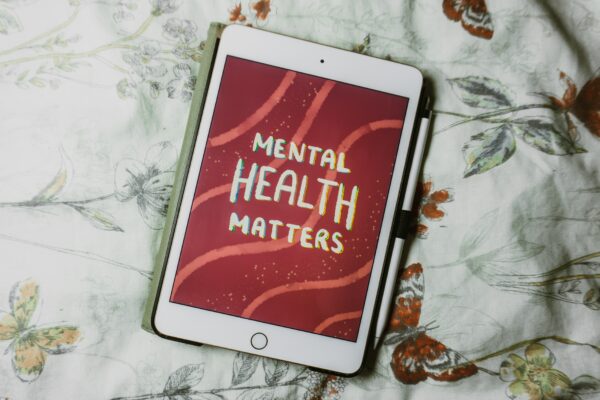Mental health in the workplace: Why it matters
Every year on 10th October, we mark World Mental Health Day – a reminder that mental health is real, it’s important, and it’s something workplaces should care about every single day.
Work can be rewarding, but it can also be stressful. Deadlines, constant connectivity, juggling tasks, working alone, or balancing working within a team – all of these pressures add up. That’s why this day gives us a chance to pause, reflect, and think about what more we can do to support mental wellbeing in the workplace.
To understand why mental health at work needs attention, here are a few stats to think about:
- In 2022/23, around 875,000 workers in the UK suffered from work-related stress, depression or anxiety – new or ongoing cases.

- Those issues cost 17.1 million working days lost over the same period.
- Poor mental wellbeing isn’t just about absence: UK employers are losing an estimated £56 billion every year due to absenteeism, presenteeism (being at work but less productive), and staff turnover.
- About 28% of all sick days in the UK are linked to mental health issues.
- Worryingly, only a small proportion of employees (around 14% in some surveys) feel comfortable talking openly about their mental health at work.
These numbers are big. They affect individuals, teams, businesses – and society as a whole.
What World Mental Health Day is all about
- To raise awareness, reduce stigma, and encourage understanding amongst one another.
- It gives us a chance to think about access to support and services, and re-evaluate what’s available.
- To remind employers and leaders that mental health isn’t just a “nice-to-have.” It’s central to sustainable work, productivity, satisfaction – and retaining great people.
What workplaces can do to support mental wellbeing
- Flexible working & respecting boundaries
Let people manage their hours where possible. Respecting “out of hours” helps reduce burnout.
- Create a comfy workspace
The right equipment, such as ergonomic furniture, and overall environment can reduce physical strain – which in turn supports mental health.
- Promote open conversation
Make mental health something that can be talked about. Normalise check-ins and encourage safe, non-judgemental conversations.
- Signpost support
Make sure employees know about mental health services, from Employee Assistance Programmes to charities like Mind and Rethink.

- Train managers & leaders
Equip those in leadership roles to recognise the early signs of stress or anxiety, and give them tools to respond compassionately.
- Encourage healthy habits
From regular breaks and movement to team social time – small changes can make a big difference.
- Review workload & expectations
Check that tasks are manageable, and when people are overloaded, find out how you can support them.
- Lead by example
If leaders respect their own boundaries, take breaks, and look after their wellbeing, it gives everyone else permission to do the same. Practice what you preach.
Why it’s good for business too
Supporting mental health isn’t just the right thing to do. It also makes good business sense:

- Happier staff = more productivity and less turnover.
- Reduced sick days.
- A stronger reputation as an employer.
- Better customer service, because staff who feel supported are more engaged.
This World Mental Health Day, here are a couple of small steps we can all commit to:
In the workplace: set up one new wellbeing initiative (e.g. awareness training, or a “quiet hour” once a week).
As colleagues: reach out to someone you haven’t checked in with lately and ask how they’re really doing.
As individuals: schedule some downtime, or reorganise your workspace to feel more comfortable and less stressful.
Final thoughts
World Mental Health Day is once a year, but it’s place in the workplace is a 365-day concern. If we all do our bit – even in small ways – it adds up.





Recent Comments